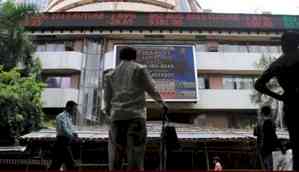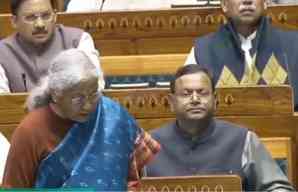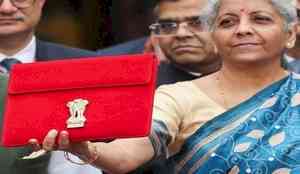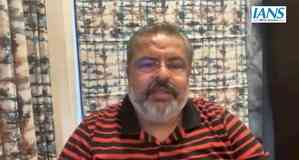Hindenburg deliberately ignores Indian legal processes: Adani Group
The Adani Group, referring to allegations made by Hindenburg Research, on Sunday said that there are multiple false narratives being created in relation to certain allegations concerning diamond exports, which matters have all been closed by the Appellate Tribunal (CESTAT) in their favour.
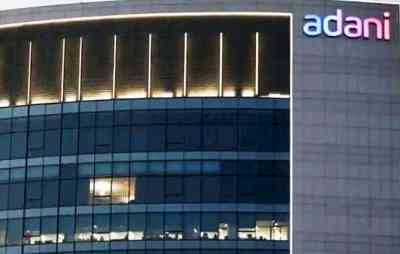
New Delhi, Jan 29 (IANS) The Adani Group, referring to allegations made by Hindenburg Research, on Sunday said that there are multiple false narratives being created in relation to certain allegations concerning diamond exports, which matters have all been closed by the Appellate Tribunal (CESTAT) in their favour.
This decision has been further confirmed by the Supreme Court itself twice over, a fact which has been deliberately ignored and concealed in the Hindenburg report (which contemptuously raises questions on the competence of the Appellate Tribunal with baseless claims that it has ignored evidence).
An example of where the report exposes its motives is the question around "convoluted structures" and multiplicity of subsidiaries, while failing to comprehend that in the infrastructure business, especially in a sprawling geography like India, most large corporates operate in a similar fashion because projects are housed in separate SPVs and these need to be ring fenced from a lender perspective for limited recourse project finance and in many cases on account of specific regulatory requirements, Adani Group said.
As an example, transmission projects in India are awarded under tariff-based competitive bidding, in such bidding, the successful bidder has to acquire the SPV which is undertaking the project. Hence, it is a regulatory requirement as part of the Electricity Act, 2003 and the regulations of the Central Electricity Regulatory Commission to execute projects in different SPVs.
Hindenburg deliberately ignores Indian legal processes and regulations in their insinuations against us, Adani Group said.
For instance, they have raised several questions around the offer for sale undertaken by Adani Green Energy Ltd in 2019, while maliciously ignoring the fact that in India the process for OFS is a regulated process, implemented through an automated order book matching process on the platform of the stock exchange. This is not a process which is controlled by any entity and the purchasers are not visible to anyone of the platform.
Adani Group said on Sunday that it is in compliance with all applicable laws and regulations.
"We are committed to the highest levels of governance to protect the interests of all our stakeholders," a statement said.
The Adani Portfolio also has very strong internal controls and audit controls. All the listed companies of Adani Portfolio have a robust governance framework. The Audit Committee of each of the listed companies is composed of 100 per cent of Independent Directors and chaired by an Independent Director. The Statutory Auditors are appointed only upon recommendation by the Audit Committee to the Board of Directors. Adani Portfolio companies follow a stated policy of having global big 6 or regional leaders as Statutory Auditors. The focus of the Adani portfolio and the Adani verticals is to contribute to nation building and take India to the world.
"We will exercise our rights to pursue remedies to safeguard our stakeholders before all appropriate authorities and we reserve our rights to respond further to any of the allegations or contents of the Hindenburg report or to supplement this statement," Adani Group said.
Adani Group, in a statement, said it is shocked and deeply disturbed to read the report published by the "Madoffs of Manhattan" - Hindenburg Research on January 24, 2023 "which is nothing but a lie".
"The document is a malicious combination of selective misinformation and concealed facts relating to baseless and discredited allegations to drive an ulterior motive," Adani Group said.
This is rife with conflict of interest and intended only to create a false market in securities to enable Hindenburg, an admitted short seller, to book massive financial gain through wrongful means at the cost of countless investors.
"It is tremendously concerning that the statements of an entity sitting thousands of miles away, with no credibility or ethics has caused serious and unprecedented adverse impact on our investors. The mala fide intention underlying the report is apparent given its timing when Adani Enterprises Ltd is undertaking what would be the largest ever further public offering of equity shares in India. This is not merely an unwarranted attack on any specific company but a calculated attack on India, the independence, integrity and quality of Indian institutions, and the growth story and ambition of India," Adani Group said.
There are three key themes from the Hindenburg Report: (i) Selective and manipulative presentation of matters already in the public domain to create a false narrative (ii) Complete ignorance or deliberate disregard of the applicable legal and accounting standards as well as industry practice, (iii) Contempt for the Indian institutions including the regulators and the judiciary, Adani Group said.
The report has been put out with the admitted intent of Hindenburg (holding short positions in various listed companies of the Adani portfolio through US traded bonds and non-Indian-traded derivatives, along with other non-Indian-traded reference securities) to profiteer at the cost of our shareholders and public investors. Hindenburg has not published this report for any altruistic reasons but purely out of selfish motives and in flagrant breach of applicable securities and foreign exchange laws, it said.
"The truth of the matter is that Hindenburg is an unethical short seller. A short seller in the securities market books gain from the subsequent reduction in prices of shares. Hindenburg took 'short positions' and then, to effect a downward spiral of share price and make a wrongful gain, Hindenburg published a document to manipulate and depress the price of stock, and create a false market. The allegations and insinuations, which were presented as fact, spread like fire, wiping off a large amount of investor wealth and netting a profit for Hindenburg. The net result is that public investors lose and Hindenburg makes a windfall gain.
"Thus, the report is neither 'independent' nor 'objective' nor 'well-researched'. The report claims to have undertaken a '2-year investigation' and 'uncover evidence', but comprises of nothing other than selective and incomplete extracts of disclosed information which has been in the public domain for years if not decades, attempts to highlight allegations which have since been judicially determined to be false, narrates as fact what is attributed to hearsay, rumours and gossip spread by unnamed sources such as 'a former trader' or 'touts' of a 'close relationship', questions the independence of the judicial processes and regulators in the nation, and selectively extracts statements devoid of their context and with no understanding of Indian law or industry practice," Adani Group said.
It is telling that not one of the allegations is a result of any independent or journalistic fact finding. The allegations and innuendoes made in the Hindenburg report are knowingly false.
Hindenburg's conduct is nothing short of a calculated securities fraud under applicable law, Adani Group said.
Ironically for an organization that seeks transparency and openness, nothing much is known about either Hindenburg or its employees or its investors. Its website alleges that the organisation has an experience that 'spans decades' and yet appears to have been set up only in 2017. Despite all its talks of 'transparency', Hindenburg has actively concealed the details of its short positions, the source of its own funding, who is behind them, the illegality underlying the synthetic structures by which they hold such positions, or the profit it has made by holding such positions in our securities, Adani Group said.
Not one of these 88 questions is based on independent or journalistic fact finding. They are simply selective regurgitations of public disclosures or rhetorical innuendos colouring rumours as fact. The report seeks answers to '88 questions' - 65 of these relate to matters that have been duly disclosed by Adani Portfolio companies in their annual reports available on their websites, offering memorandums, financial statements and stock exchange disclosures from time to time. Of the balance 23 questions, 18 relate to public shareholders and third parties (and not the Adani portfolio companies), while the balance 5 are baseless allegations based on imaginary fact patterns.


 IANS
IANS 
